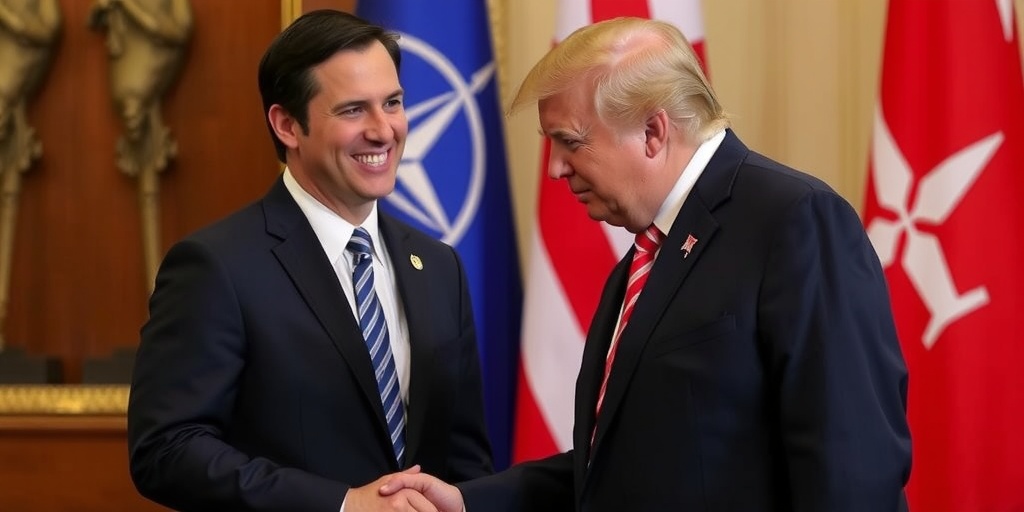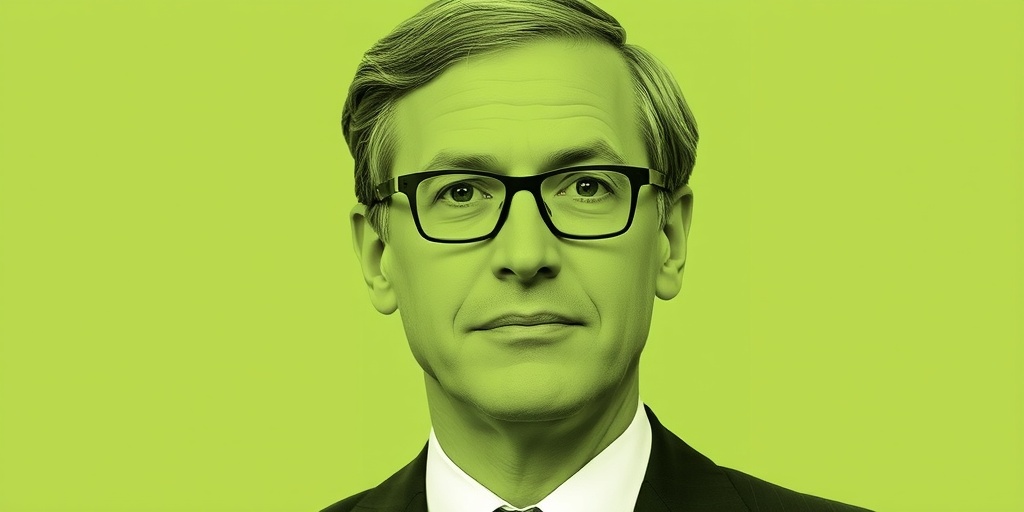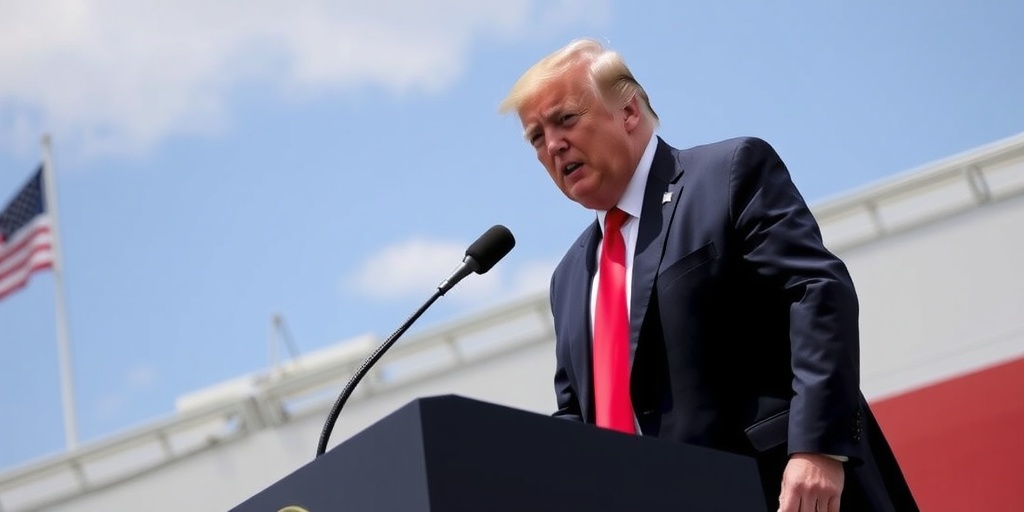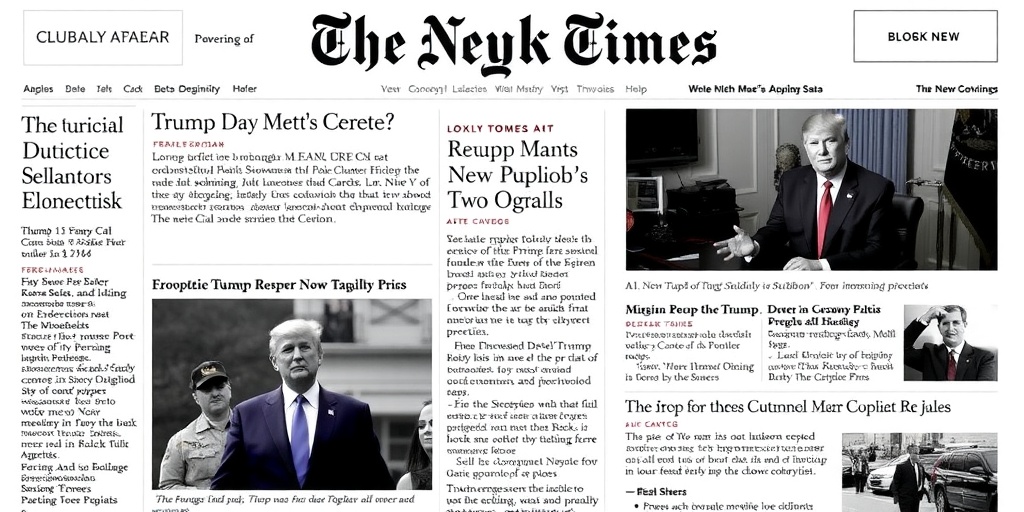Now Reading: Trump Critics Stay Silent Amid Fear of Retribution
-
01
Trump Critics Stay Silent Amid Fear of Retribution
Trump Critics Stay Silent Amid Fear of Retribution
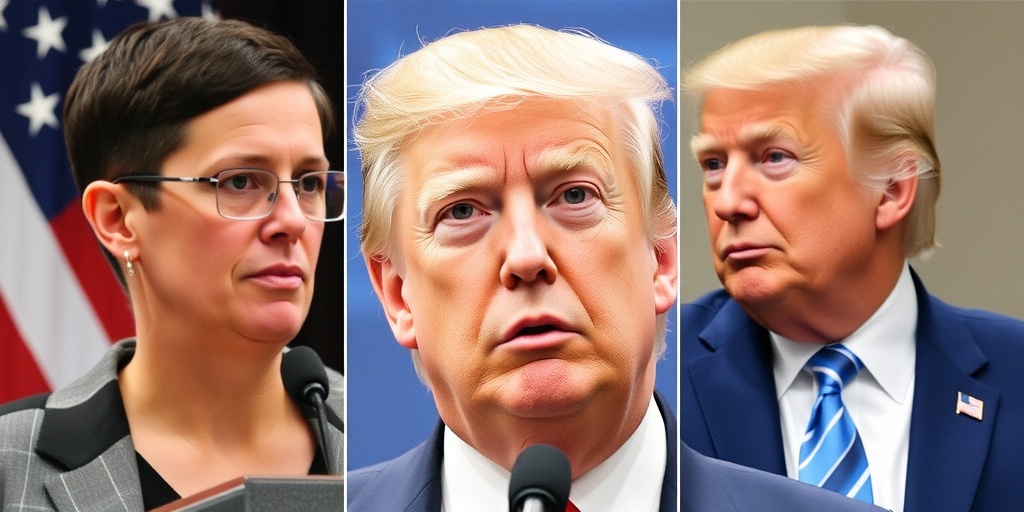
The Erosion of Political Discourse Under Trump’s Second Administration
As political tensions escalate in Washington, a pervasive silence has enveloped many who might normally contribute to public debate. With the beginning of President Trump’s second term, concerns regarding personal safety, professional repercussions, and the implications of speaking out have silenced voices across the political spectrum.
Countless individuals, from apprehensive federal employees fearing job loss to university presidents worried about the potential loss of federal funding, are hesitating to speak up. Major corporate leaders, anxious about tariffs that might negatively impact their businesses, remain reticent. Even veteran Republican leaders, traditionally vocal in public discourse, have either chosen silence or cautiously tiptoed around criticism of Trump’s controversial actions and statements.
This chill in political discussion extends beyond Washington. Many influential figures across various sectors are distancing themselves from open dialogue, intimidated by the possibility of retaliation from Trump and his allies, such as billionaire Elon Musk. Concerns about personal safety and the potential of facing primary challenges from within their own party exacerbate this climate of fear.
“This fear is evident when prominent societal figures, such as university presidents and CEOs, adjust their behavior to avoid government backlash. It signifies a worrying shift toward authoritarianism,” explains Steven Levitsky, a Harvard professor and co-author of the notable 2018 book "How Democracies Die."
The chilling effect is palpable. Trump’s administration has sent out stark warnings to those who oppose him. For instance, he has revoked security details for high-profile critics and threatened to remove security clearances from lawyers representing opponents. One Republican congressman, speaking anonymously, expressed hesitance to be quoted, fearing that publicly voicing concerns would escalate threats from extremist factions.
Senator Thom Tillis of North Carolina illustrates this fear. Initially reluctant to support Trump’s defense secretary nominee, Tillis quickly reversed his position after Trump hinted at primary challenges. Such actions reflect the pressures on elected officials as Trump’s influence looms large.
In a striking example, Senator Roger Wicker of Mississippi demonstrated the fragility of bipartisan support for Ukraine. After confronting President Zelensky and posting a supportive public message, Wicker later deleted the post—a move interpreted as politically motivated retreat. Many Republican hawks, known for their outspoken nature, have begun to recede into silence, even as they grapple with the implications of Trump’s remarks regarding Ukraine.
While the majority of elected Republicans align with Trump’s agenda, there are noticeable divisions even within the party. Some Democrats have voiced their concerns over Trump’s rhetoric and policies, yet the general lack of vocal opposition within both parties is disconcerting. University leaders, in particular, have remained muted in their criticisms, prompting commentary from the American Council on Education president, Ted Mitchell, who suggests that engaging with perceived hostility is counterproductive.
Nevertheless, not all are complicit in silence. Michael Roth, the president of Wesleyan University, has openly criticized what he considers an authoritarian climate that stifles intellectual discourse. He equates the current pressures to those experienced during the McCarthy era, where individuals faced societal backlash for dissenting opinions.
Moreover, Representative Eric Swalwell has shed light on the disproportionate fear among Republicans regarding personal safety. He emphasizes that potential violence against their families serves as the primary deterrent for them to speak up against Trump and his administration.
As such tensions rise, voices of dissent are beginning to emerge. Last week, five former defense secretaries penned a letter condemning Trump’s actions in dismissing senior military leaders and called for urgent hearings to discuss the implications for national security.
While some Republicans argue that warnings of authoritarianism are exaggerated, others are beginning to recognize the dangers presented by Trump’s governance style. Former Representative Peter Meijer frustratingly characterized the reaction to these warnings as dramatic, reflecting a growing divide in perceptions of the political landscape.
Mark Cuban, a billionaire entrepreneur and vocal critic of Trump, articulated that post-Trump, there’s little value in derogatory rhetoric. He believes that engaging in name-calling serves more as a political tool rather than a pathway to constructive dialogue.
As the political climate evolves, Olivia Troye, a former Trump administration official, warns that the collective silence allows Trump and his allies to maintain power. Acknowledging the notion of self-preservation, she urges those affected to remember their own influence and the importance of speaking out against injustices.
Ultimately, while Trump has tightened his grip around political discourse, conditions are ripe for change. Amid whispers of resistance, committed individuals are beginning to voice their critiques, embodying a growing sentiment that challenges to tyranny must be met with courage. The future of American democracy hinges on whether voices of dissent can emerge from the shadows of fear and reclaim the public space for open dialogue.
Stay Informed With the Latest & Most Important News
Previous Post
Next Post
-
 01New technology breakthrough has everyone talking right now
01New technology breakthrough has everyone talking right now -
 02Unbelievable life hack everyone needs to try today
02Unbelievable life hack everyone needs to try today -
 03Fascinating discovery found buried deep beneath the ocean
03Fascinating discovery found buried deep beneath the ocean -
 04Man invents genius device that solves everyday problems
04Man invents genius device that solves everyday problems -
 05Shocking discovery that changes what we know forever
05Shocking discovery that changes what we know forever -
 06Internet goes wild over celebrity’s unexpected fashion choice
06Internet goes wild over celebrity’s unexpected fashion choice -
 07Rare animal sighting stuns scientists and wildlife lovers
07Rare animal sighting stuns scientists and wildlife lovers














